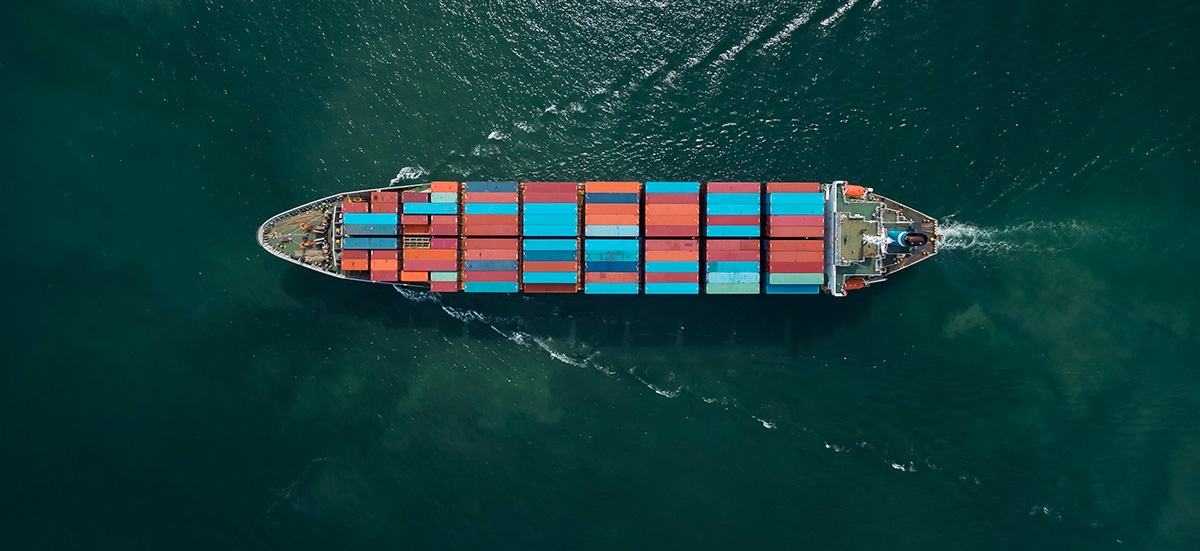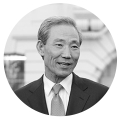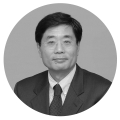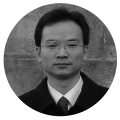Asia Society Policy Institute Trade Commission visit to Australia
VIEW EVENT DETAILSMaking Waves: Asia-Pacific Trade in 2019

Aerial view of cargo ship, cargo container near Thailand. (Anucha Sirivisansuwan/Getty Images)
2018 was an eventful year for international trade and investment. With the breakdown of talks between the US and China over the summer, tensions continued to escalate, resulting in hundreds of billions of dollars in tariffs between the world’s two largest economies, shaking international markets and dampening the outlook for global economic growth. The Trump administration, which has largely shunned multilateralism, concluded talks to revise both the US-Korea free trade agreement (KORUS) and a new US-Mexico-Canada Agreement (USMCA) to replace NAFTA, and recently announced its intention to pursue bilateral deals with Japan, the EU, and the UK.
Despite US preference for bilateral deals, trading nations across Asia have stepped up efforts to pursue regional agreements. The Comprehensive and Progressive Agreement on Trans-Pacific Partnership (CPTPP) – the successor to the TPP – entered into force in December, and is projected to broaden its membership base in the coming year. The Regional Comprehensive Economic Partnership (RCEP) leaders are set to conclude talks this year. And while disagreements over the future of the WTO persist, new efforts have emerged for WTO reform, including on the dispute settlement mechanism and increased transparency, as well as developing new rules for e-commerce.
2019 is set to be the year of the trade deal. The US Trade Representative's hard deadline for China's structural changes is fast approaching. If China fails to meet reforms by March 1, the 25% tariffs on $200 billion of Chinese goods will be imposed.
In this dynamic time, the Asia Society Policy Institute (ASPI), under the leadership of Vice President Wendy Cutler, is pleased to convene a group of senior Asian trade experts to review these developments and offer concrete recommendations for navigating this tumultuous time and bolster the international and regional trading system. This will be the 3rd Annual Trade Commission and will be held from February 12-15 across both Sydney and Melbourne.
To stay updated subscribe to our Asia Briefing newsletter. For more information please contact [email protected] or 02 8199 9402.
About the Annual Trade Commission
In March 2016, ASPI convened its first ever Trade Policy Commission under the “Building a High Standard and Inclusive Asia-Pacific Trade Architecture” initiative. Building on the success of this first commission, ASPI continued its work the following year with a second commission. ASPI draws on a diverse array of trade experts from across the region to form each commission to review the network of trade agreements and initiatives underway in the region and provide recommendations on how to promote inclusive and integrated growth in the Asia-Pacific through trade. The results of the previous two commissions were published in 2017 and 2018.
Charting a Course for Trade Economic Integration in the Asia-Pacific (2017)
Shifting Trade Winds: U.S. Bilateralism and Asia-Pacific Economic Integration (2018)
About the Commissioners

Wendy Cutler (Chair) is Vice President of the Asia Society Policy Institute. She served for nearly three decades as a diplomat and negotiator in the Office of the U.S. Trade Representative, most recently as Acting Deputy U.S. Trade Representative.

Peter Grey was formerly Australian Ambassador to Japan, the European Union, the WTO and APEC as well as being Chief Trade Negotiator. Peter’s current roles include Chairman of MLC Ltd and Co-Chair of the Japan Business Group of Corrs Chambers Westgarth.

Kim Jong-Hoon served as South Korea’s Minister for Trade and was the Chief Negotiator of the Korea-U.S. Free Trade Agreement. A career diplomat, Kim has over 38 years of experience in foreign service and trade issues.

Andrew Stoler is former Deputy Director-General of the WTO, as well as founding Executive Dean of the Institute for International Trade at the University of Adelaide. He served for nearly 20 years at the Office of the US Trade Representatives and is now an independent consultant.

Yoichi Suzuki is the former Japanese Ambassador to Singapore and has a long experience in international trade negotiations, including serving as Japan’s Chief Negotiator for the recently concluded EU-Japan Economic Partnership Agreement (EPA).

Tu Xinquan is the Executive Dean in the China Institute for WTO Studies at the University of International Business and Economics in Beijing, China. His research covers the WTO, Chinese trade policy, and US-China trade relations.
Our Global Initiatives programs bring together the best of our 15 centres to Australia. Convened as both stand-alone events and ongoing collaborations, Asia Society Australia combines global reach with local networks to deliver an international portfolio of programs.
Event Details
Sydney. Melbourne and Canberra
